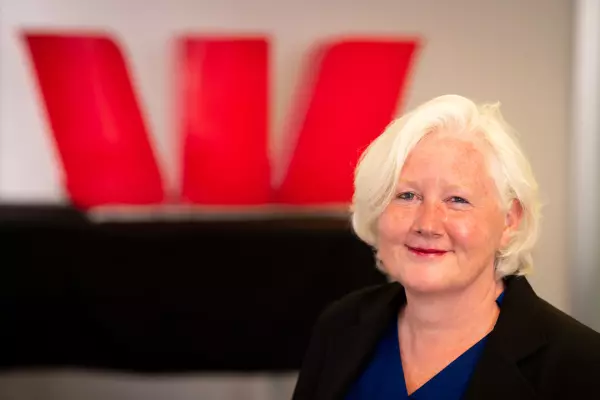BusinessDesk investments editor Frances Cook responds to emails from readers each week to answer questions about money. Below, you will find her expert advice. Send your own questions to [email protected].
Hi Frances,
I have inherited $150,000 - help.
I’m 33, no debt, no dependents.
I want to buy into half a property as I feel like I am wasting my income on rent but I earn a fairly low income ($50,000) so I'm scared about the affordability of mortgage interest rates right now.
I’d probably have to borrow $250,000 to buy into the half share of the property.
Are interest only repayments ok in the short term (1-2 years) to make it more manageable?
Thanks
L
Hi L
First, stop. Pause. Breathe.
There’s a lot happening when you get an inheritance. Someone you were close to has died, which may or may not give you some complicated emotions to work through.
You’ve also just had a big chunk of money fall into your lap. That can make your head spin, with or without that emotional baggage.
The biggest risk in this situation, I’m afraid, is you.
That’s said with absolutely no judgement, because the biggest risk to anyone in this situation is themselves.
The urge is to make a snap judgement, to move quickly, to not waste this opportunity.
But all of that will be guided by emotion, and emotion is what makes us do silly things with our money.
My advice is to first park this money somewhere safe, like a high-interest savings account. Make sure you don’t have easy access to it, so you’re not tempted to dip into it for day-to-day spending or treats.
Just put it to the side, and give yourself 6 months to a year to cool off.
Yes, that seems like a long time, but this is a big chunk of money, possibly a lot of emotional baggage to process, and we want to give you time to adjust to the new situation.
Six months to cool down could save you from getting into a situation that ends up hurting instead of helping you.
Your options
Now that you’ve given yourself some time, it’s time to start thinking about what you want to do with the money, and learning the best ways to go about it.
Sit with a pen and paper, and think about what life would look like if you won lotto.
Would you want to travel? Buy a house? Change career?
There are no wrong answers, there’s only what would make your life happier.
This will help you figure out your values and goals.
Now obviously this inheritance is a nice chunk of change, but it’s not a lotto-win level. Still, it’s a big boost to help you get towards whatever those goals are that you write down.
Buying a house could be a great option. You could also decide you want to invest in shares. You might decide you want to study, to start a career that gives you more financial security in the future.
All of these are great options, and you can use them to help you get ahead in life.
What matters is which one works for your personal goals.
Affordability
To help you decide if you can afford the repayments, look up an online mortgage calculator.
I put $250,000 into one such calculator, for a 30-year mortgage, at a 5.99% interest rate.
It came back saying the repayments would be $345 a week.
I also put into a paye calculator (https://www.paye.net.nz/calculator/) that you earn $50,000, ticked yes for paying into KiwiSaver, and it calculated that you get paid $763.75 each week after tax.
So that would leave you $418.75 each week for any other expenses.
Food, electricity, transport, and any fun would come out of that $418.75. Have a look at how much you currently spend, and think about if that will work for you.
If I have any details of your situation wrong there, I hope I’ve given you enough information that you could run the numbers on yourself, and see how much this would cost you, and how comfortable you would feel with that budget.
Shared property
You also mention that you’d be buying into half a house, not buying a property just for you.
I don’t know if this is as part of a couple, with a friend, or a shared ownership scheme.
All I’ll say is if you want to buy into a house with someone, make sure you’re crystal clear on the person that you’re buying with.
They should be someone that you’re comfortable having in-depth financial conversations with. Conversations that mean you both know each other’s financial situation, and are comfortable with it. Because if something happens to them paying their half of the mortgage, you will be on the hook for their part of the debt.
Talk to a lawyer, and consider having a legal agreement drawn up that makes it clear how ownership is divided, who is responsible for what costs, and what happens if either one of you wants to sell.
This is slightly less complicated if you mean buying into a shared property as part of a couple, but I would still recommend having a thorough conversation about this beforehand.
Talk to experts
All of this will help you figure out what you want, and how comfortable you feel with it.
After that, I think it’s time to talk to some industry professionals.
Make an appointment with the bank to talk to one of the mortgage team about your desire to buy into a house, and what they would want to see from you to be approved for a mortgage.
You’ve got time, so you can hear what they have to say, then go back home and read up more about it on your own time. This should make it less scary.
Although, I’ll be honest, everyone is scared when they buy a house, including me!
Excitement and anxiety are two very similar emotions, so don’t feel like just because you’re nervous it means you shouldn’t do it. Take your time, learn about it, and chase down your goals.
It might also be worth talking to a financial adviser to see if investing in something like shares is a better move for you.
Rent doesn’t have to be dead money. It can give you the opportunity to move, whether for lifestyle or career, which you may still want to do at this stage of your life.
Putting your money into shares means it would still be growing and helping you build wealth, and possibly even building income for you to help pay future rent bills.
I’ve written a guide on how to pick a financial adviser, which I think you should check out here. Please note, one of the big red flags is that they need to be registered and qualified to provide advice to you. They also should not talk down to you, or make you feel like you have silly questions.
All questions are fair questions, you need to understand what’s happening. If they talk down to you, find someone new.
Having no debt is excellent, and no dependents gives you freedom on what you want to do here.
You’ve been given a wonderful opportunity by whoever left you this money. So take your time, figure out your goals, process any emotions, and then use it in the way that best improves your life.
Send questions to [email protected] if you want to be featured in the column. Emails should be about 200 words, and we won't publish your name. Unfortunately, Frances is not able to respond to every email received or offer individual financial advice.
Information in this column is general in nature and should not be taken as individual financial advice. Frances Cook and BusinessDesk are not responsible for any loss a reader may suffer.















